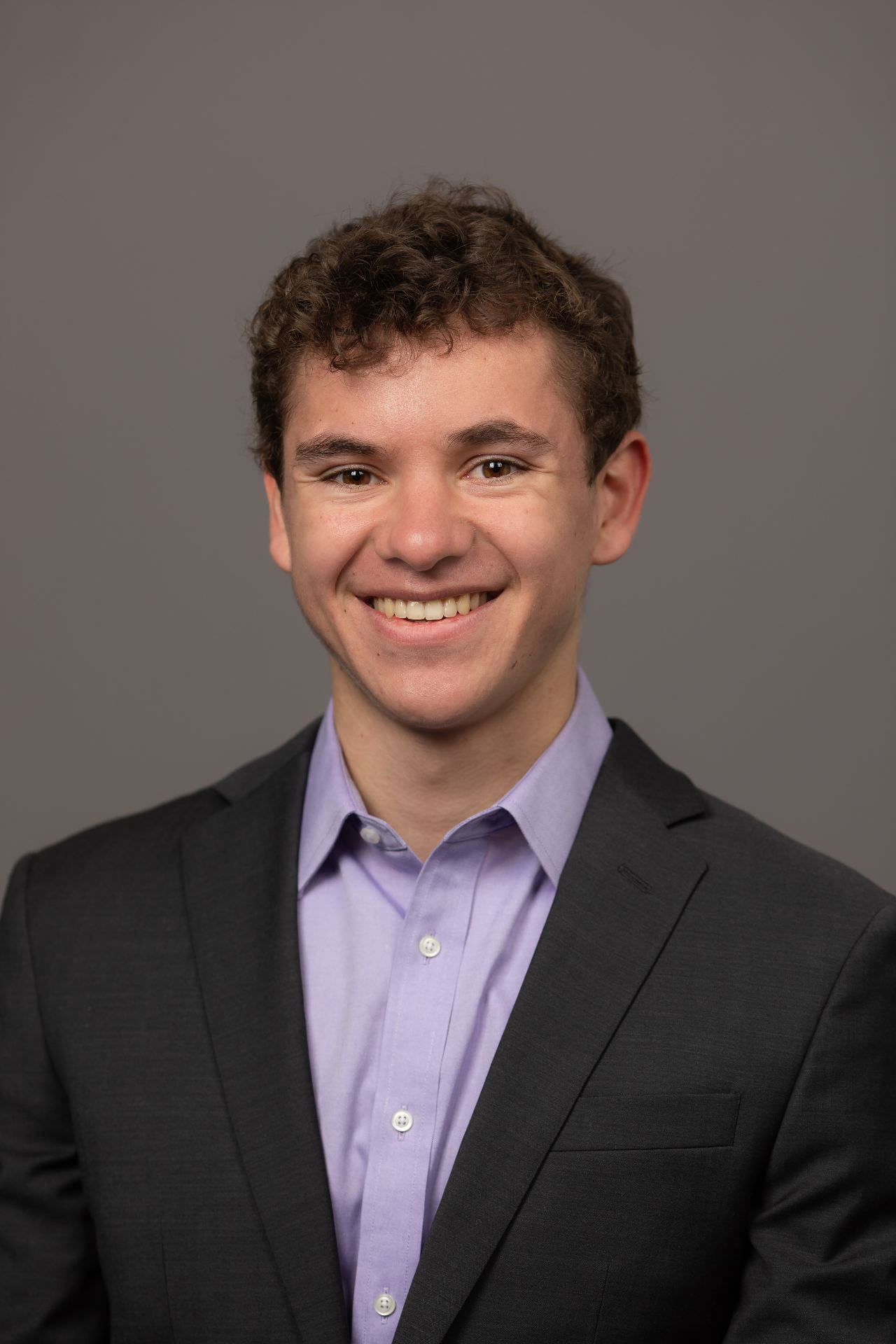Jorik Stoop is graduating with the Research Option in Biomedical Engineering. His thesis, conducted under the direction of Dr. Denis Tsygankov, discusses cell mechanics and migration.

How long have you been an undergraduate researcher at Georgia Tech?
I’ve been an undergraduate researcher for almost three years now. My first semester doing research was in the Exoskeleton and Prosthetics Intelligent Controls (EPIC) lab in Fall 2021, where I worked for one year. I’m now in my fourth semester in the Integrative Systems Biology lab.
How did you get involved with undergraduate research?
I got involved with undergraduate research through the Vertically Integrative Projects (VIP) program. Coming into BME, I was originally interested in prosthetics and wanted to get involved in projects outside of class. The VIP program has a list of projects and teams on their website. The EPIC lab was seeking new members, so I applied to join the hip exoskeleton VIP team and started my first research experience in my third semester. My interest eventually shifted from human biomechanics to cell mechanics and computational modeling, so I decided to switch labs after my second year. To find a new lab, I emailed professors whose labs I was interested in, and then talked with the professors and graduate students about available projects before deciding which lab to join.
What are you working on?
My work in the Integrative Systems Biology lab focuses on developing computational models to study cell mechanics and migration. I currently work on a project investigating mechanisms of cell migration in confined environments. In tight spaces, motile cells like metastatic cancer cells tend to soften and rely less on actin and myosin, which are important components of the cytoskeleton that generate forces driving cell migration. So, the question that I am trying to answer is how these highly motile cells are still able to migrate efficiently through tight spaces without relying on actomyosin-generated forces.
An alternative mechanism for force generation has been suggested by recent experimental studies, with dynein motor proteins and microtubules replacing the forces generated by actin and myosin to keep cells moving efficiently in confinement. However, this proposed mechanism is not well studied, so many questions remain about how the dynein-microtubule system works.
In my project, I use computational modeling to test different hypotheses and better understand this dynein-driven mechanism of cell migration. For example, one question is how the forces relate to cell membrane protrusions. With computational modeling, I can test different relationships like assuming that force is proportional to protrusion length, and then compare cell migration metrics of simulations and experiments to see if the hypothesis can explain what is occurring in real cells. I received a PURA salary award this semester to work on this project, which is also my thesis project for the Research Option. My work will help reveal the mechanisms cells use to migrate efficiently through tight spaces, which is important to understand and combat cancer cell metastasis.
What is your favorite thing about research/researching?
It’s hard to pick one favorite so I will mention two. The first is that I love the freedom and creativity involved in research, especially compared to coursework. I find it very exciting to work on questions that don’t have clear answers. Compared to classes which have very structured content, with research I am constantly learning new information and skills that I can apply to test hypotheses and answer challenging scientific questions. My second favorite thing about research is sharing my work and learning from others. I’ve had the chance to present at a few conferences and even did a research fellowship abroad in Japan through Georgia Tech’s Nakatani RIES program. Through these experiences I’ve met people from all over the world, and I love getting to see all the amazing work people are doing to improve human health through biomedical research.
What are your future plans and how has research influenced them?
I am planning to pursue a PhD in Biomedical Engineering after I graduate, focusing on computational modeling and biomechanics. Doing undergraduate research and participating in the Research Option definitely influenced my decision to pursue a PhD. With the research option specifically, I’ve had to work on an independent project and write a thesis describing my work. This process made me realize that I love developing studies to answer challenging questions and helped prepare me to communicate my work to others. In the future, I want to lead research projects in industry, for example using computational simulations of patient-specific heart models to improve surgical planning. During my PhD education and future career, I hope to continue connecting with people around the world and collaborating to improve human health.
